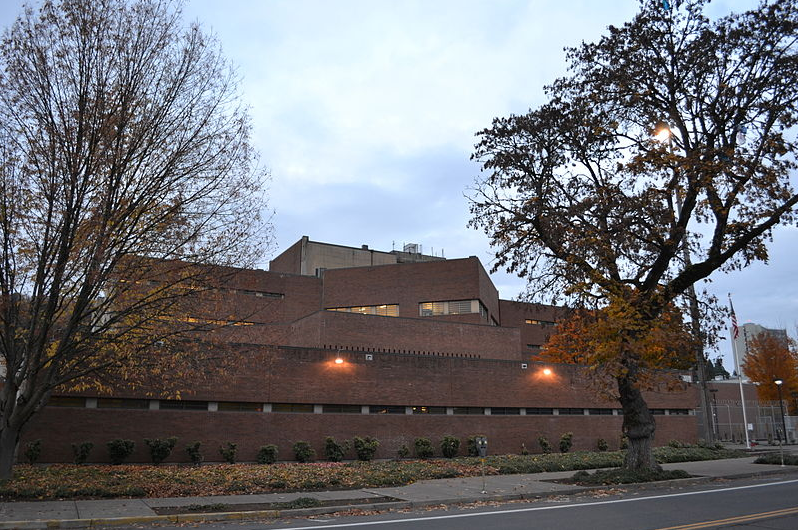It’s been 6 years since private contractors took over mental health, dental and medical services at the jail. The current provider since 2015 is WellPath, previously known as California Forensic Medical Group, and Cheryl Gifford is the Mental Health Supervisor and Psychologist for this contractor. The Lane Country Jail is one of the largest providers of mental health treatment in the county. WellPath has six mental health employees. Two full-time providers hired by Lane County Behavioral Health provide additional discharge related services for inmates in the Jail.
382 beds are currently being used at the Lane County jail. Of those 382, 300 inmates receive medical or psychiatric medications. 20,000 doses of medication are provided monthly. 60-65% of the population…up to 250 people…have mental health issues that are currently housed in the jail. 196 people were seen in the past month because of suicidal tendencies. Suicide prevention is one of the most critical services provided in the jail. The second most critical service deals with crisis intervention. Crises include divorce, sentencing, no contact orders, child custody issues, relationships, job loss, housing problems, etc.
Psychiatric medication is provided by a psychiatrist who comes to the jail, which is uncommon. Most psychiatrists deal with jails via web conference. Support services are also provided to inmates who have been referred, either by themselves, other inmates or employees.
WellPath provides diagnosis, therapy and treatment plans at the Lane County jail. Therapies include mindfulness treatment which helps patients to focus on what’s going well in their lives right now rather than in the future or past. Motivational interviewing therapy is utilized to determine readiness for addiction therapies.
A very innovative treatment employed with those who have a serious mental illness level is a group therapy program utilizing mindfulness treatments within a group setting. Yoga instructors come in to help with the therapy. These are people who have difficulty benefiting from books, reading, etc. Instead, alternative therapies, including music and art therapies, are employed.
There is a higher number of dementia patients being seen in the most recent years. Most of these cases cannot stand trial and the most difficult part is arranging for their care after they leave the jail.
Those with traumatic brain injuries are also becoming more common. They don’t “recover” with medication and need alternative environments. There are not a lot of places in the community that specialize with these injuries. Additionally, those on the autism spectrum need specialized treatment to help them deal with a very uncomfortable environment.
Example: a young man was placed on a suicide watch. He’d gotten in to an altercation with his girlfriend and he was devastated that he had harmed her (he had slapped her and it was a minor offense.) He stabbed himself in the chest and was taken to the hospital. He was beside himself and wanted to die. He didn’t want to become his father. Therapy helped him to see that he had come to a changing point and that he could choose to continue down this path of becoming his father, or choose a different path that included counseling.
The thing that is broken most in the system right now is a lack of housing. Eugene has lots of services in our community but nowhere for someone with limited or no resources to go. Additionally, the temporary housing locations are not near the services. This results in more repeat offenders and deeper levels of depression, anxiety, etc.
The cost of keeping an inmate in jail is $132/day. It is much less costly to provide housing and social services.

